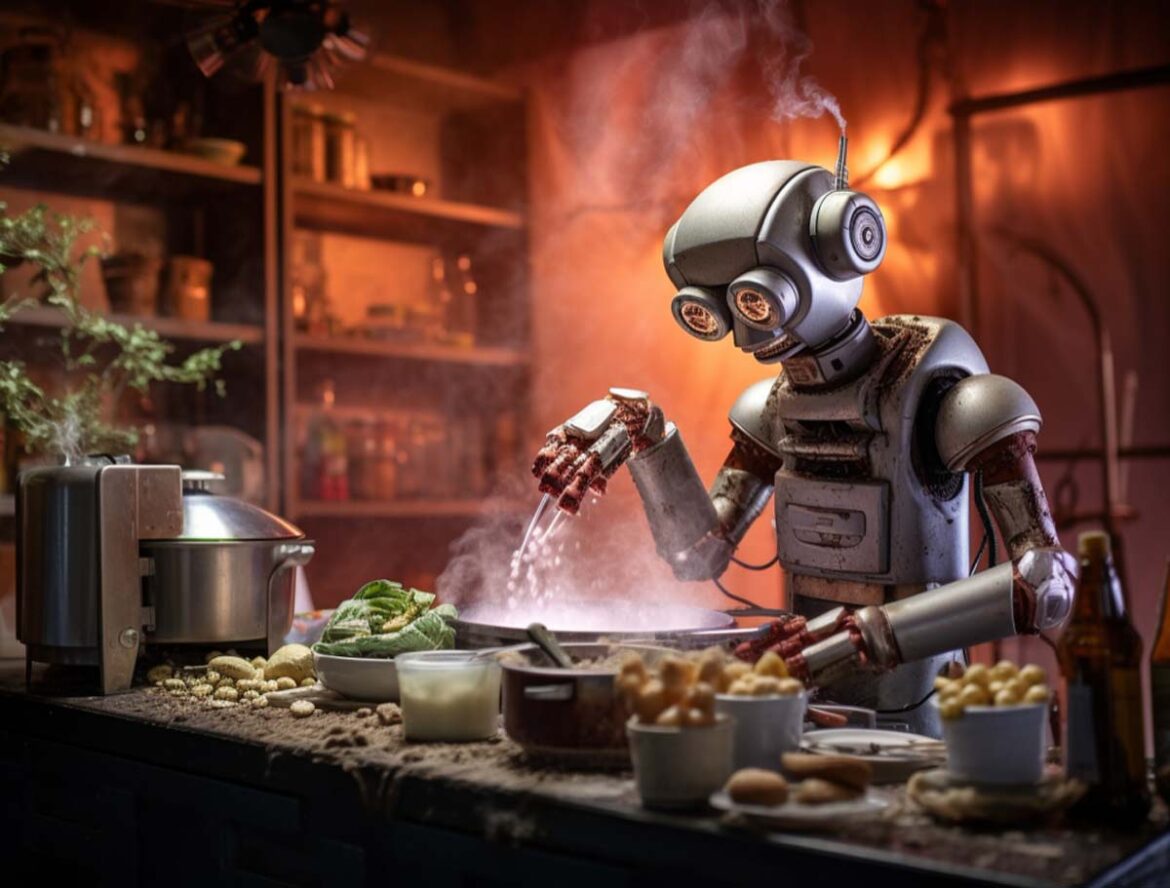AI is increasing in popularity in every aspect. It might lead to the transformation of society at its base. AI often fuels other emerging technologies, such as big data, robotics, and the Internet of Things, with generative AI expanding its possibilities. According to a 2023 survey, about 42% of large companies have AI integrated, while 38% have implemented AI that produces generative AI.
The Evolution of AI
Since the completion of the first AI program, a checkers game by Christopher Strachey on the Ferranti Mark I computer in 1951, AI has evolved significantly. The use of generative AI, as evidenced by OpenAI’s GPT models and ChatGPT, has allowed machines to generate text, audio, pictures, etcetera. Moreover, through machine learning and deep learning, artificial intelligence has greatly aided in genome sequencing for vaccines and modeling human speech patterns.
Impact of AI on the Future
AI adoption in business automation is increasing, as 55% of organizations use AI to some extent. Data analysis accelerates decision processes, while customer interactions and employee queries are handled through AI-driven chatbots and digital assistants.
Increased Regulation
The legal implications of AI, especially on intellectual property, are being examined. Legal actions against OpenAI can shape the way U.S. law interprets private and public ownership rights. The introduction of guidelines by the Biden-Harris administration concerning data privacy and civil liberties is expected to lead to tighter regulations depending on prevailing political circumstances.
Climate Change Concerns
AI has a dual impact on sustainability and climate change. In another way, AI improves the supply chain and reduces the prediction maintenance result through the reduction of carbon emissions, which are used to make these models of energy consumption. In physical terms, the development of AI models would call for considerable additional power, making it hard to achieve or even enhance power while lowering CO2 emissions, thus making sustainable development goals difficult to attain.
The Issue Of Job Disruption
Concerns about job loss have been raised with the rise of business automation, which means that AI could be responsible for almost 30% of work done by employees. However, although some roles might be automated, skilled jobs like machine learning specialists are in high demand. Artificial intelligence will spur upgrading. Hence, there will need to be more investment in education to retrain workers.
What Industries Will AI Impact the Most?
Manufacturing
Robotic arms and predictive analysis sensors have been employed for automotive production for quite some time now and give reliability to the process.
Healthcare
Big data analysis, diagnoses, new drugs, and virtual assistants are examples of innovative healthcare applications provided by Artificial Intelligence (AI).
Finance
AI is no longer a mere technological influencer in financial services. It’s revolutionary, offering the opportunity to enhance fraud detection, audits, risk, credit scoring, and loan-lending software and assist in enhancing organizational work and management.
Education
It is already redefining education to mean taking textbooks away from their paper-based format, removing plagiarism, and providing learning experiences tailored to the individual’s needs.
Media
Automated Insights, like Journalism’s content creation tool, produces many reports with the help of AI. Nevertheless, there are ethical concerns about incorporating generative AI into news production.
Risks of AI
Deepfakes and Misinformation
This challenge is one of the main reasons for deepfake, which makes the distinction between the real world and fake information even harder and can lead to serious consequences such as political campaigns and financial fraud.
Data Privacy
The best AI training is done with public data; consumer privacy will always be compromised since this results in more data leaks. Additionally, new forms, such as generative AI, have underlying issues regarding legal and IP compatibility in industries.
Job Losses
If not addressed, this might lead to rampant joblessness in the wake of machine automation, which is estimated to affect 44% of workers’ skills by 2028, with women and marginalized groups being affected the most. Nevertheless, when downsizing or having no measures for skill upskilling or enhancing, serious risks could worsen these and other more negative trends, such as unemployment and inequity.
Frequently Asked Questions
1. How does AI enhance online shopping experiences?
Through enhanced decision-making and tailored recommendations for consumers, AI makes online shopping better. As of now, the application of artificial intelligence has been implemented on e-commerce platforms such as Amazon to identify customer’s behavior patterns and propose to them products that may suit their interest. Using computer programs popularly termed ‘’chatbots, ‘’customers seek information and are attended to by a consummate service crew at all hours.
2. Is AI a threat to humanity?
This suggestion depends on the actions of people in charge of the future advancement of artificial intelligence. There is also the potential for AI to be used more nefariously, such as impersonating identity, revealing people’s identifiable information, coating falsehoods as truth, and entrenching social justice, among other vices.
